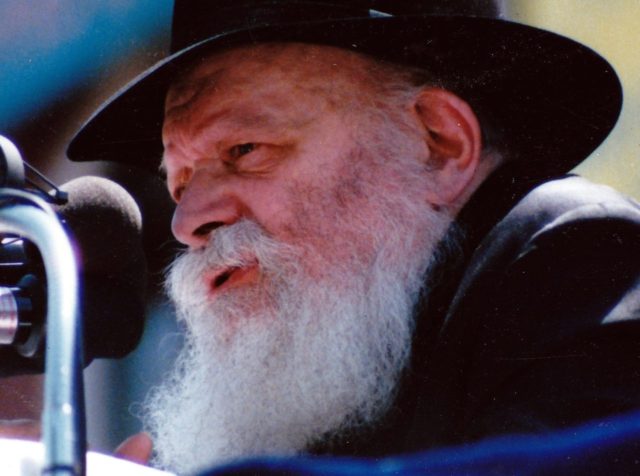Tuesday marks the 23rd anniversary of the passing of the seventh and last Lubavitcher Rebbe, Menachem Mendel Schneerson.
Many of his followers and admirers will mark the day by visiting his gravesite, where he is buried next to his father-in-law at the Ohel in Queens, New York. Others will reflect on the enduring legacy of a leader whom biographer Joseph Telushkin, in his 2014 book, Rebbe, declared “the most influential rabbi in modern history.”
Schneerson’s Chabad movement has continued to grow, more than two decades after his death. It has flourished even as American Jewish institutions in general, and liberal ones in particular, have declined. One reason is quite simple: Chabad, like its leader, is focused on the moral, spiritual, and practical essence of Judaism itself, while many other movements and institutions have become mired in politics (none more so than Reform and its variants).
I was once asked on Twitter which conservative philosopher defined my outlook: “Maimonides? Hayek? Rand?” I thought briefly about the writers and thinkers who had influenced me most: George Orwell, a socialist who wrestled with the left’s affinity for totalitarianism and became its most incisive critic; Alexis de Tocqueville, who explained the social foundations of liberty in ways that remain relevant today; Hayek, who defined the limits of statism as the outcome of limits in knowledge itself; and so one. But one name popped into my mind and stuck there: Schneerson.
Schneerson
— Joel B. Pollak (@joelpollak) February 17, 2017
I am neither a Hasidic Jew, nor a religious scholar, though I am observant and profess the Orthodox Jewish faith. What I find inspiring about Schneerson is the urgency of his moral vision. To him, every human being, and every situation, had the potential to produce good — and that potential was best brought about now, immediately.
He did not confine his view to the Jewish world alone — though he took a unique approach there as well, stressing the positive value of Jewish tradition and practice, embracing Jews from other movements without validating the compromises they had made. Schneerson also sought to bring awareness of God, and awareness of the opportunity to help others, into society as a whole, through the Seven Noahide Laws of universal morality and other methods.
Schneerson was not a partisan figure — indeed, he provided counsel to Democrats as well as Republicans — but he was essentially a conservative, trusting in the redemptive power of received wisdom. He exemplified the kind of sunny conservatism most often identified with Ronald Reagan, yet which Reagan’s heirs have struggled to emulate. He was grounded in the past, but always looking forward.
That is why his legacy endures, and continues to grow.
Joel B. Pollak is Senior Editor-at-Large at Breitbart News. He was named one of the “most influential” people in news media in 2016. He is the co-author of How Trump Won: The Inside Story of a Revolution, is available from Regnery. Follow him on Twitter at @joelpollak.

COMMENTS
Please let us know if you're having issues with commenting.